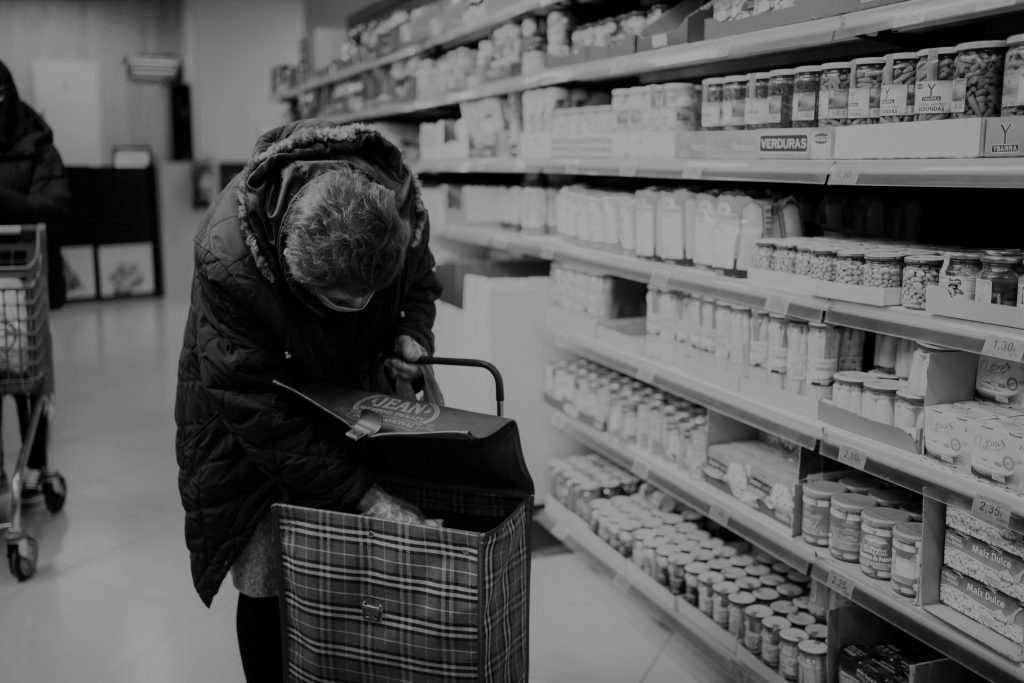Bristol Women’s Voice volunteer, Chloe Hughes, summarises the key points from the Women’s Budget Group’s recent briefing on the gendered impact of the current cost-of-living crisis.
Key Summary
- Cost of living crisis will hit the poorest hardest, women are more likely to be poor and have been hit harder by cuts to social security and public services.
- Women have lower savings and wealth than men.
- Women often have more caring responsibilities so are less able to increase work hours.
- Women are the ‘shock absorbers of poverty’ as they tend to have the main responsibility of purchasing food and managing the budget for their family.
- Poverty rates are significantly higher for people from Bangladeshi (53%), Pakistani (48%) and Black ethnic groups (40%).
- Disabled people are more likely to struggle financially as they already face high extra costs due to their impairment or condition.
- Single parents, most of which are women, are more likely to be in financial difficulty and debt.
- Victims of domestic abuse are likely to find it hard to leave the relationship as they may be unable to support themselves and their children.
- Women that are excluded from claiming social security are at high risk of poverty, especially if they lose their job or separate from a partner.
Additional information
- The increase in fuel prices is impacting lots of different areas, e.g. food, due to the increase in costs of transport to retailers.
- Childcare costs rose between 4%-6% in 2020, which is well above the rate of inflation.
- 33% of parents using childcare say their payments are bigger than their rent or mortgage.
- Low-paid women are more likely to have fallen behind on household bills or skipped meals for financial reasons compared to low-paid men.
- During the pandemic, lower paid workers were more likely to be on 80% furlough or have reduced hours. This affected women disproportionately as there is twice as many women in the bottom 10% of earners and women make up 60% of those earning below the Real Living Wage.
- From December 2020-2021, men’s earnings while working full time increased by 5.12% while women’s increased by only 2.53%.
- Significantly more women work part-time than men (38% of women in employment compared with 13% of men).
- Men’s average weekly earnings = £596.70, Women’s average weekly earnings = £420.80.
- Women, especially single mothers, low-paid, disabled and BAME women, were more likely to be in debt than men.
- Women act as ‘shock absorbers of poverty’ and try to shield their children from the effects; ¼ young mothers skip meals every day to keep within the family budget.
- Black, Asian and minority ethnic women earn less, are less likely to be in paid work and more likely to be living in poverty. This is in addition to having less savings and investments, meaning they are less likely to be able to cope with rising living costs.
- Disabled women are less likely to be in employment than disabled men or non-disabled people. Disabled people are also more than twice as likely to be unable to heat their home and three times as likely to not be able to afford food.
- 1/3 of single parents are in financial difficulty and 11% in problem debt; 40% experience difficulties in meeting childcare costs; 77% of single parent families will be living under the minimum income standard.
- For victims of domestic abuse, one in 10 women have had debt put in their name and were too afraid to say no. Abusers can increase their monitoring of the victim’s spending and stop contributing to household costs in times of struggle, leading to refuge centres facing higher costs for energy etc.
Recommendations
- Increase in benefits to keep up with inflation.
- Abolition of the benefits cap and two child limit.
- Conversion of Universal Credit advances into non-repayable grants.
- Increases in ESA, Jobseekers Allowance and Statutory Sick Pay.
- Increase Child Benefit to £50.
- End the ‘No recourse to public funds’ condition, which excludes many migrant women from support.
- Windfall tax on energy companies.
- Investment in retrofitting homes to reduce energy costs.
- Investment in public transport to reduce fuel and transport costs.
- Investment in social housing to reduce hosing costs.
- Investment in social infrastructure, e.g. care services, to support people with care needs so unpaid care does become a choice.

